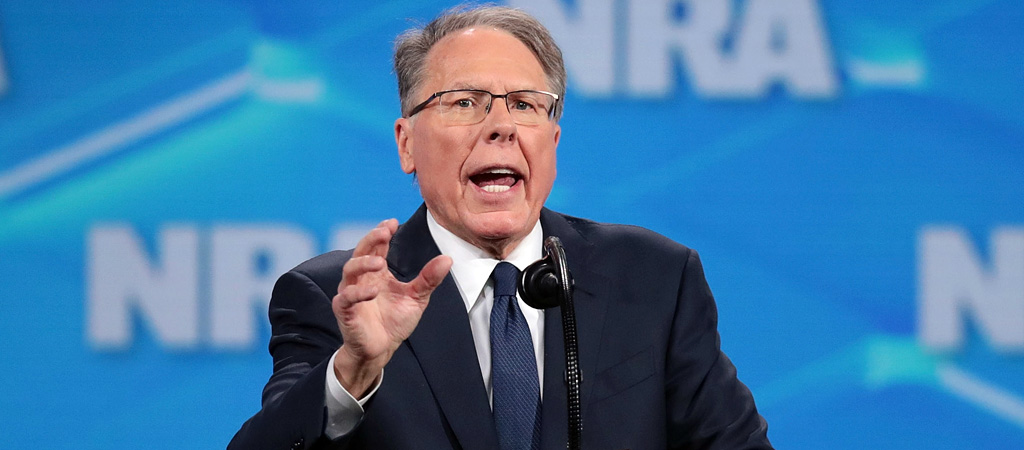
The National Rifle Association (or the NRA) is probably the most powerful political lobbyist organization on Capitol Hill. The group has dug in on their Second Amendment agenda in recent years and funded millions of dollars to various members of Congress to get their legislation passed. They’ve got a large, loyal, uber-conservative fanbase behind them too, one that’s so loyal in fact that top NRA executives don’t mind trashing them as “hillbillies” and “fruitcakes” in private meetings. (Because really, what are they going to do? Stop owning guns?)
A recently unearthed recording of a secret meeting between high-level NRA members following the Columbine shooting in 1999 paints a pretty grim picture of the group that claims to be representing everyday Americans invested in protecting their Constitutionally-given rights. The closed-door meeting happened soon after the mass school shooting left 13 dead and dozens more injured, and was recorded by a participant who asked to remain anonymous when giving NPR access to the tapes. NPR published parts of transcripts taken from the 2.5 hours worth of recordings today and those documents contain some damning insight into the organization, including how higher-ups within the group view their most outspoken supporters.
As the group, which consisted of NRA chief Wayne LaPierre, NRA lobbyist Marion Hammer, PR consultant Tony Makris, among others, debated on whether to hold a planned convention in Denver just days after the shooting, a handful of members questioned whether doing so would invite the more fringe guns-rights activists to stir up trouble for them.
“The people you are most likely to get in that member meeting without an exhibit hall are the nuts,” LaPierre says of the planned exhibit set-up before Makris quickly chimes in, “I agree. The fruitcakes are going to show up.”
Hammer can be heard backing both men saying, “You’re going to have the wackos … with all kinds of crazy resolutions, with all kinds of, of dressing like a bunch of hillbillies and idiots. And, and it’s gonna, it’s gonna be the worst thing you can imagine.”
NPR reached out to the NRA for comment after verifying the recordings and their courses to which the gun group responded like this:
“It is disappointing that anyone would promote an editorial agenda against the NRA by using shadowy sources and ‘mystery tapes’ in order to conjure up the tragic events of over 20 years ago.”
So, it sounds less like the firm is outright denying any of their executive members would ever disparage their base and more like they’re trying to draw attention away from the name-calling by questioning why tapes from 20 years ago still matter. An interesting strategy, though, probably not a good one.
(Via NPR)
